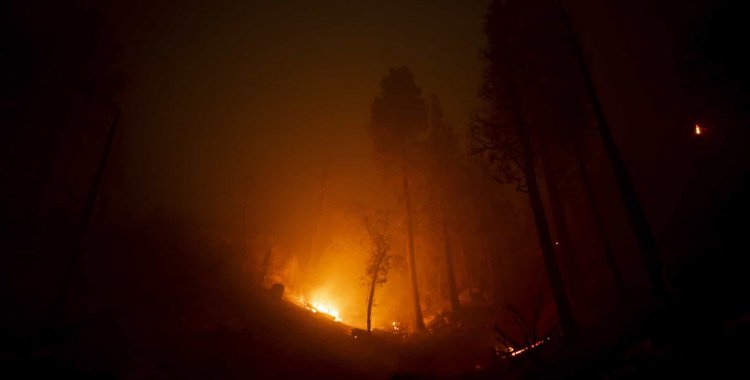The reference was expressed this Wednesday by the deputy national commander for Civil Protection and Fire Management, fire commissioner Manuel Lutango, while speaking at the technical seminar for the preparation of a project on Sustainable Fire Management, promoted by the Ministry of Culture, Tourism and Environment (MCTA) and the Food and Agriculture Organization of the United Nations (FAO).
Manuel Lutango said that the data from the burning and forest fire monitoring services refer to the period between May 15th and August 15th.
According to the official, the fire monitoring system (AFIS) installed in the operational coordination center of the Civil Protection and Fire Service is dedicated to monitoring fires and forest fires, whose remote sensing occurs in near real time, depending on the interval of satellite scan time in the region, which takes place from 15 to 30 minutes.
The data indicate that some small forest fires are included in the potential fires, which occur mainly in areas far from the reach of firefighters and difficult to access for certification actions 'in loco' and their extinction, eventually self-extinguishing.
"In order to mitigate the insufficiencies, we must implement and intensify local and community actions, with the adoption of practices and techniques suitable for hunting, charcoal production and preparation of agricultural fields," said Manuel Lutango.
The Civil Protection and Fire Service is part of the Continental Program for Monitoring the Environment and Security in Africa (MESA), coordinated by the African Union and funded by the European Union.
In turn, the representative of FAO, Gherda Barreto, expressed the UN organization's total availability to provide technical support to the country's environmental and climate challenges, with a view to the sustainable development of Angola.
"FAO is an accredited agency in this Green Climate Fund for projects of a medium size, up to 250 million dollars", said Gherda Barreto, noting that this fund is the largest instrument for financing mitigation and adaptation to change projects. climate.
According to Gherda Barreto, FAO has a portfolio of 15 projects approved by the Green Climate Fund, of which three are in Africa, totaling 930 million dollars.
The press release underscores that the results of this technical meeting, which ends on Thursday, will be part of a project to be presented to the Green Climate Fund's governing board in April 2022 for funding.
This initiative is part of the National Climate Change Strategy until 2030 and aims to support the sustainable management of fires, which is a recurrent practice in the country, with significant impacts on the population, ecosystems and biodiversity.
The preparation of this project will contribute to achieving the mitigation and adaptation goals defined in Angola's Nationally Determined Contributions, under the United Nations Framework Convention on Climate Change.
In this sense, the country intends to count on the support of the Green Climate Fund, the largest international fund for financing projects to reduce emissions and adapt to climate change.
The facilitation of the event will be supported by the technical team of experts from FAO and the network of scientists from the International Savanna Fire Management Initiative (ISFMI).
In 2019, data from the MODIS (Moderate Resolution Imaging Spectroradiometer) satellite launched by NASA - the US space agency - indicated that Angola led the list of countries with the highest number of forest fires, surpassing the Democratic Republic of Congo and Brazil.
At the time, the Government of Angola reacted by admitting the existence of fires that happen at a certain time of the year, in various regions of the country, for agricultural purposes, a "secular" practice that configures the preparation of land for cultivation, however "far from assuming uncontrollable proportions".
The Angolan authorities stressed at the time, that this practice of the peasants happens as the rainy season approaches and "although it is not the most advisable, it is usual, secular".







